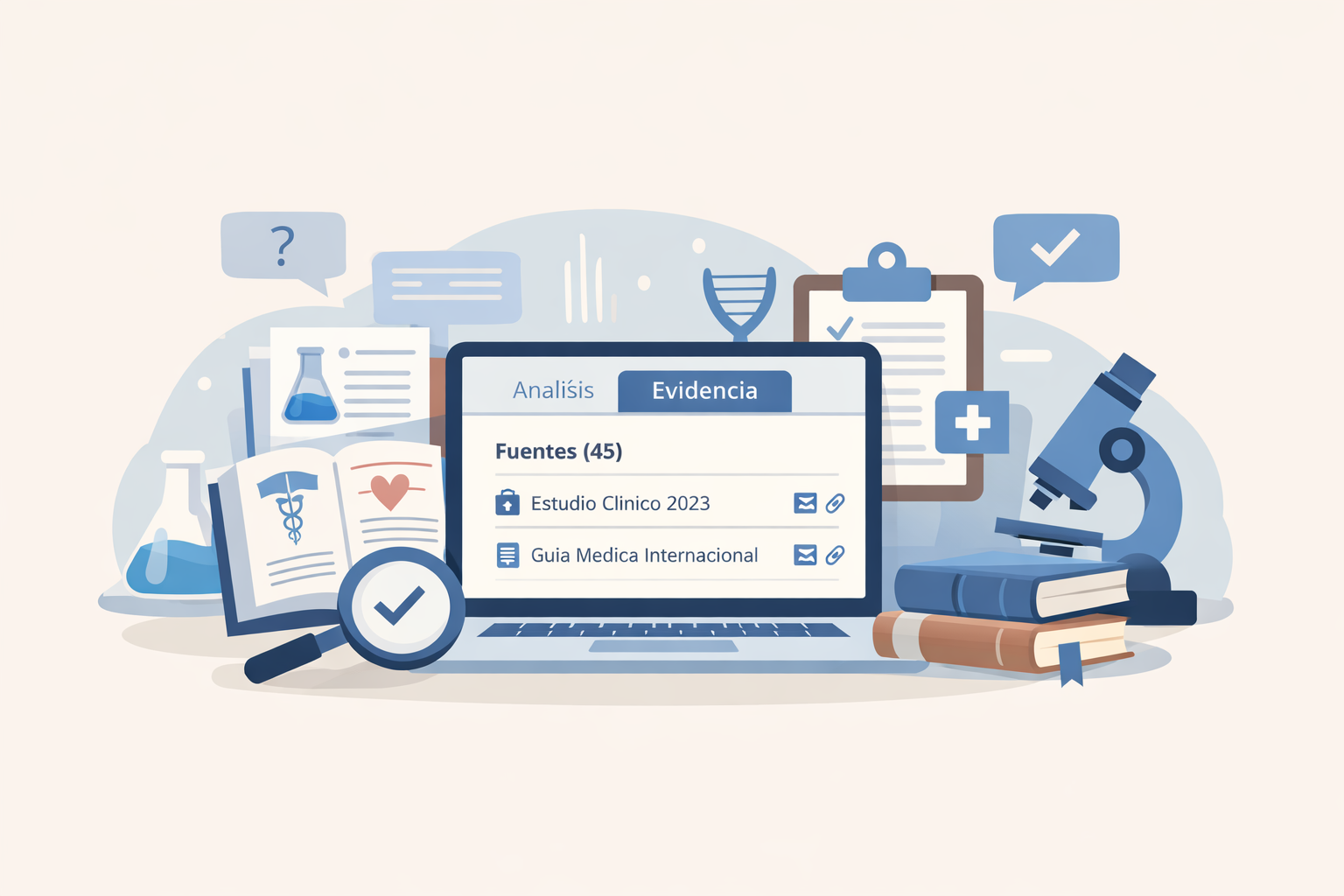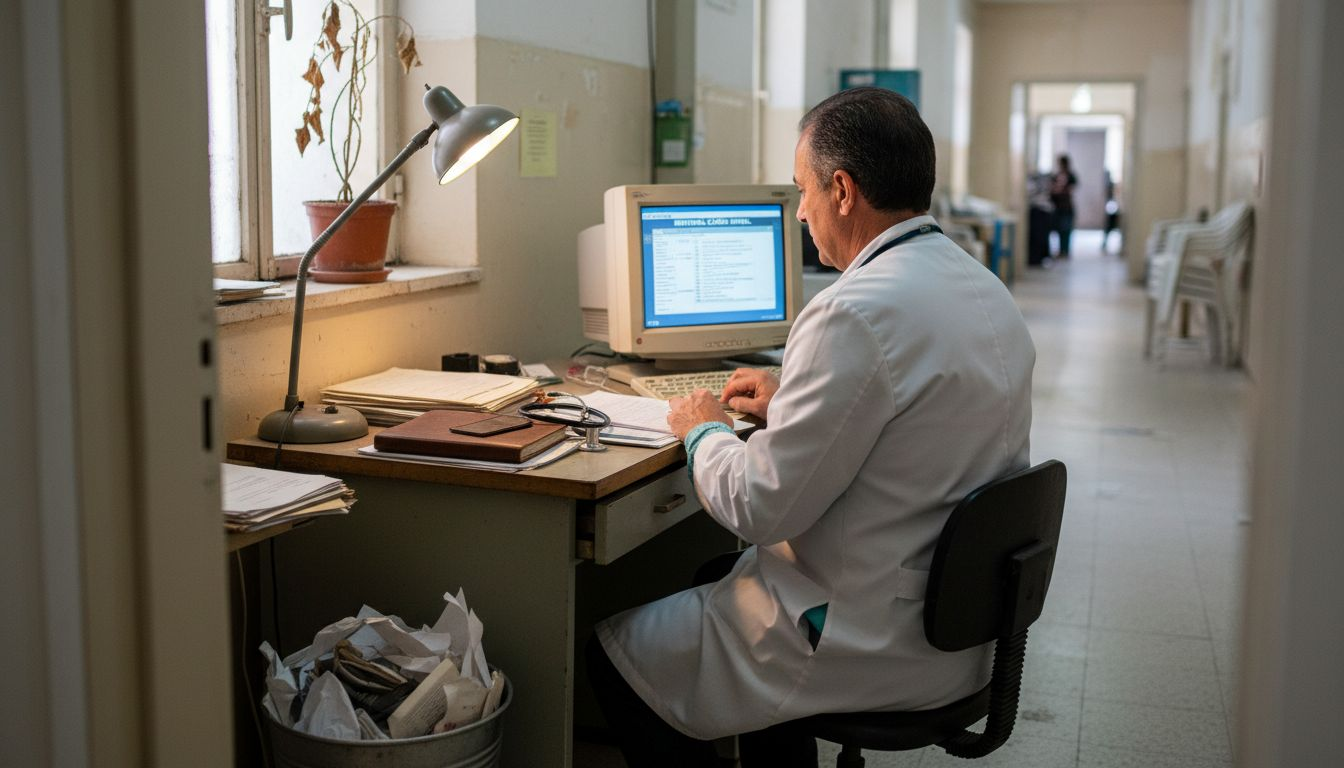Itaca and ChatGPT are two intelligent tools, but with different objectives and functions. Itaca is designed especially for physicians, complying with security and privacy protocols that ChatGPT does not have.This difference surprises those expecting a unique artificial intelligence solution and opens the door to fascinating questions about the future of healthcare.
Table of Contents
- what are itaca ia and chatgpt?
- importance of itaca ia and chatgpt in medical care
- theoretical foundations behind itaca ia and chatgpt
- comparison of practical applications in the clinic
- future prospects for itaca ia and chatgpt in medicine
Quick Summary
| Conclusion | Explanation |
|---|---|
| Itaca specializes in medicine | It focuses on improving clinical processes and diagnostic decisions for healthcare professionals. |
| ChatGPT is a generalist tool | It provides comprehensive information but lacks specialization for medical settings. |
| Both platforms optimize medical care | They facilitate diagnostic accuracy and efficient communication of complex information. |
| Itaca ensures privacy and scientific rigor | Designed to comply with specific protocols in medical practice, offering greater safety. |
| AI does not replace human knowledge | These tools are supports for professionals, enhancing their capabilities rather than replacing them. |
What are Itaca and ChatGPT?
In today's artificial intelligence landscape, Itaca and ChatGPT represent two technological tools with significantly different approaches and applications.especially in the medical context. Each platform has unique characteristics that distinguish them in their ability to process and generate information.
Itaca: A Specialized Solution in Medicine
Itaca emerges as an artificial intelligence platform designed specifically for healthcare professionals. Unlike general purpose tools, this solution is focused on automating and improving clinical processes.
Its main features include:
- Instant SOAP note generation
- Diagnostic decision support
- Search for medical answers in authorized references
- Analysis of clinical cases
- Automated call summaries
ChatGPT: A Generalist Artificial Intelligence Platform
ChatGPT, developed by OpenAI, is a large-scale language model with extremely broad text processing and generation capabilities. Its approach is more general, being able to answer questions, generate content and perform tasks in multiple domains.
In the medical context, ChatGPT can provide general information, but lacks the specialization and specific security protocols that Itaca IA offers for clinical environments.
The main difference is that Itaca is built with privacy and security protocols designed specifically for medical practice.ChatGPT is a more generic tool with significant limitations in professional healthcare environments.
To facilitate direct comparison between the two platforms, the following table summarizes the key differences in features and approaches of Itaca IA and ChatGPT in the medical domain.
| Platform | Main focus | Security and privacy | Key applications | Specialization |
|---|---|---|---|---|
| Itaca | Specialized medical solution | Strict medical protocols | Clinical support, note generation | Discharge (medical context) |
| ChatGPT | Generalist text platform | Standard security protocols | General answers, comprehensive text generation | Low (multiple domains) |
For medical professionals looking for an accurate and safe technological solution, Itaca IA represents a better alternative for clinical information management..
Importance of Ithaca IA and ChatGPT in medical care
Artificial intelligence is radically transforming health care processes, offering tools that can optimizing the efficiency, accuracy and quality of health care. Both Itaca IA and ChatGPT represent technological innovations with the potential to revolutionize different aspects of medical practice.
Improved Communication and Information Processing
According to recent researchArtificial intelligence models can significantly assist medical professionals in the synthesis and communication of complex clinical information. In this context, these tools offer crucial benefits:
- Fast processing of large volumes of medical information
- Generation of accurate clinical summaries
- Reduction of errors due to information overload
- Optimization of consultation time
Diagnostic Accuracy and Clinical Support
Each platform brings unique capabilities to the medical ecosystem. Itaca IA is distinguished by its specialized focus on clinical environments.providing tools designed specifically for healthcare professionals. Your AI assistant for physicians allows for a safer and more controlled integration of the technology.
Meanwhile, ChatGPT offers a more generalist approach that can complement, but not replace, professional clinical judgment. Its ability to generate diverse information can serve as a quick consultation tool, although it requires constant critical monitoring.
The real revolution lies in understanding that these technologies are supportive tools, not substitutes for human medical knowledge and expertise. Its main value lies in enhancing the capabilities of professionals, not in replacing them.
Theoretical background behind Ithaca IA and ChatGPT
The theoretical foundations of artificial intelligence platforms such as Itaca AI and ChatGPT represent complex technological paradigms that revolutionize information processing and generation. Each tool uses machine learning architectures and methodologies with fundamentally different principles..
Language Model Architecture
According to recent researchChatGPT is based on transformer architectures and deep neural networks. Its ability to understand and generate natural language is based on learning models that can:
- Process large and complex contexts
- Generate coherent and contextual responses
- Adapt to multiple knowledge domains
- Perform transfer of learning
Specificity and Training
Whereas ChatGPT employs generalist training with large volumes of textual data, Ithaca IA develops a much more specialized learning approach restricted to the medical context.. Your artificial intelligence platform for physicians distinguishes itself by training its models with specific clinical data, ensuring greater accuracy and relevance.
This specialization involves training algorithms with:
- Anonymized medical records
- Specialized scientific publications
- Updated clinical protocols
- Verified medical references
The fundamental difference lies in the fact that Itaca AI does not seek to be a universal tool, but an artificial intelligence solution. meticulously designed to optimize medical processes with maximum scientific and ethical rigor.
Comparison of practical applications in the clinic
Practical applications of Itaca IA and ChatGPT in clinical settings reveal fundamental differences in their capability, accuracy and utility.. Each tool offers unique perspectives that can complement, but not replace, professional clinical judgment.
Diagnosis and Case Analysis
Recent research demonstrate that artificial intelligence tools can contribute significantly to the reconstruction and analysis of fragmented medical records. In this context, the capabilities of each platform differ substantially:
- Itaca IA specializes in completing incomplete medical records
- ChatGPT offers a general but less specialized perspective
- Itaca IA integrates specific clinical protocols
- ChatGPT provides information of a more generic nature
Medical Documentation Generation
The generation of documentation represents a scenario where the differences between the two platforms become more evident.. Our response system for physicians allows the generation of documents with verified references and accurate medical context.
Itaca IA stands out for:

- Generate structured SOAP notes
- Incorporate verified medical references
- Maintaining the privacy of information
- Adapt to specific clinical protocols
Meanwhile, ChatGPT can generate more general texts, but lacks the specialization and scientific rigor needed in professional medical documentation.
The following table shows concrete examples of how medical professionals use Itaca IA and ChatGPT in daily clinical practice, highlighting their applications and limitations.
| Clinical use | Ithaca IA | ChatGPT |
|---|---|---|
| Completing medical records | Automatic, following medical protocols | Can provide general information |
| SOAP note generation | Structured and verified references | General texts, without references |
| Analysis of clinical cases | Specific and safe approach | General approach, without clinical context |
| Privacy of information | Strictly guaranteed | Notable limitations |

Future perspectives of Ithaca IA and ChatGPT in medicine.
The evolution of artificial intelligence in medicine promises to profoundly transform diagnostic, treatment and clinical information management paradigms.. Platforms such as Itaca IA and ChatGPT represent the first steps toward a technological revolution that will redefine medical practice.
Integration and Development of Specialized Tools
Contemporary research suggests that the future of medical artificial intelligence will move toward highly specialized and personalized tools. In this regard, Itaca IA positions itself as a development model focused on specific clinical needs.
The most promising lines of development include:
- AI models with enhanced contextual interpretation capabilities
- Systems that integrate multiple sources of medical information
- Real-time adaptive learning tools
- Platforms that ensure maximum data privacy and security
Clinical Process Transformation
Our solutions for medical professionals point to a radical transformation of diagnostic and administrative processes. Artificial intelligence will not replace professionals, but will act as a powerful assistant that:
- Reduces administrative burden
- Improved diagnostic accuracy
- Facilitates quick access to relevant information
- Enables more informed decision making
The technological horizon suggests a symbiosis between artificial intelligence and human medical knowledge, where tools such as Ithaca AI will be instrumental in raising healthcare standards.
Discover how Itaca AI revolutionizes medical practice beyond ChatGPT
Are you concerned that general AI solutions, such as ChatGPT, don't understand the depth and sensitivity of your daily clinical challenges? Document overload and lack of secure tools can increase the risk of errors and take valuable time away from your patients. At our tips section we share exclusive resources designed for medical professionals to optimize clinical workflows, improve diagnostic accuracy and reduce administrative burden. Experience how to automate your SOAP notes, get diagnostic decision support and maintain total data privacy with a trusted platform.
Enter today to Itaca.ai and access an environment created specifically for your medical needs. Take the next step towards more efficient, accurate and secure clinical management. No longer settle for generic tools. Prioritize the protection of your patients and your professional time. Check out the most recent developments and transforms your day-to-day practice.
FAQ
What is Itaca IA and what does it specialize in?
Itaca IA is an artificial intelligence platform designed specifically for healthcare professionals, focusing on the automation and improvement of clinical processes, such as SOAP note generation and diagnostic decision support.
How does ChatGPT differ from Itaca IA in the medical field?
ChatGPT is a generalist language model developed by OpenAI, which can answer questions and generate content in a variety of domains, including medical, but lacks the specialization and security protocols offered by Itaca IA for clinical environments.
What are the practical applications of Ithaca AI in medicine?
Itaca IA allows the generation of structured medical documentation, the analysis of clinical cases and the automation of processes, guaranteeing the accuracy and security of the processed medical information.
What are the benefits of artificial intelligence in diagnostic and clinical processes?
Artificial intelligence improves the efficiency, accuracy and quality of medical care, enables the rapid processing of large volumes of information and assists in the generation of clinical summaries, thus reducing workload and errors due to information overload.





Leave a Reply